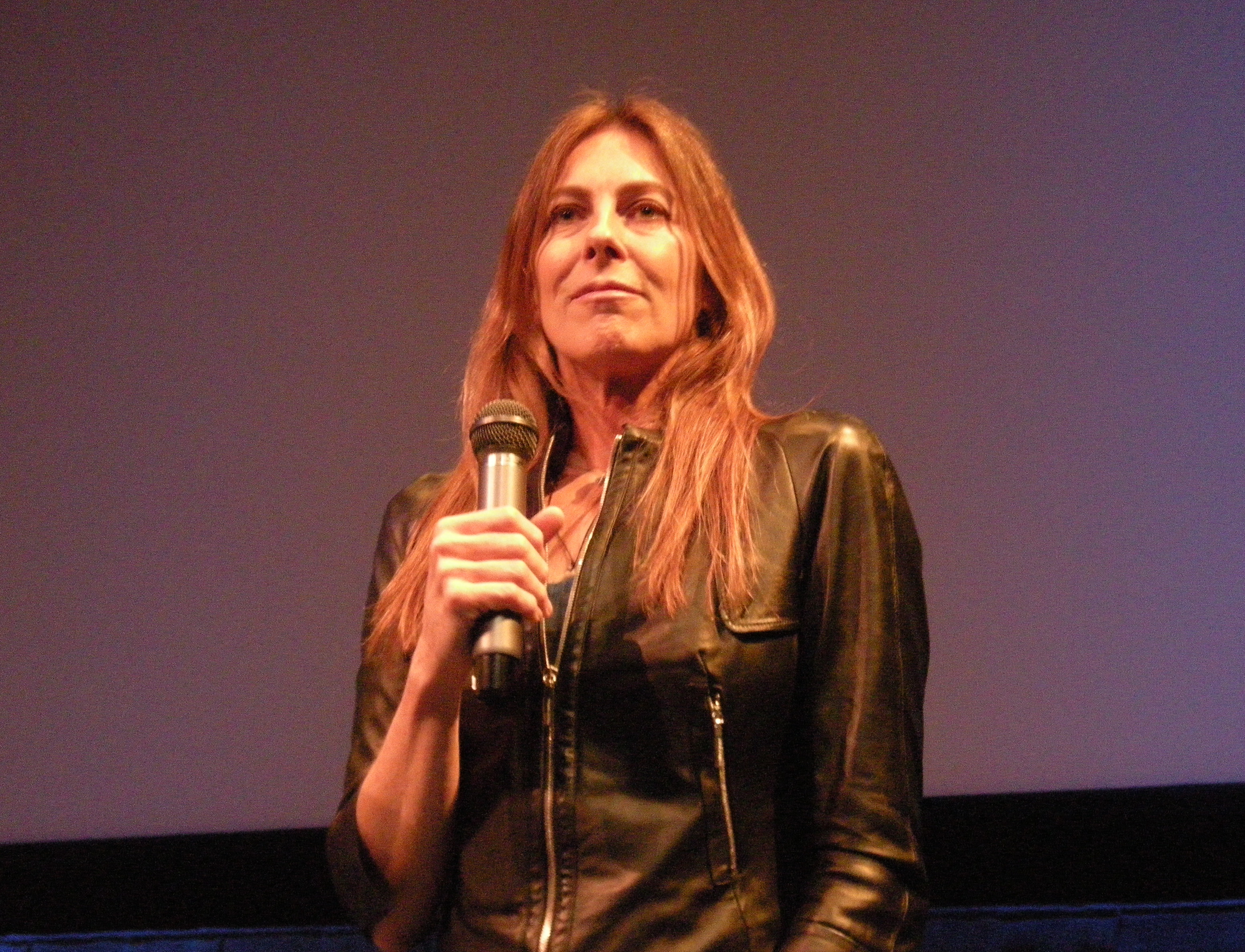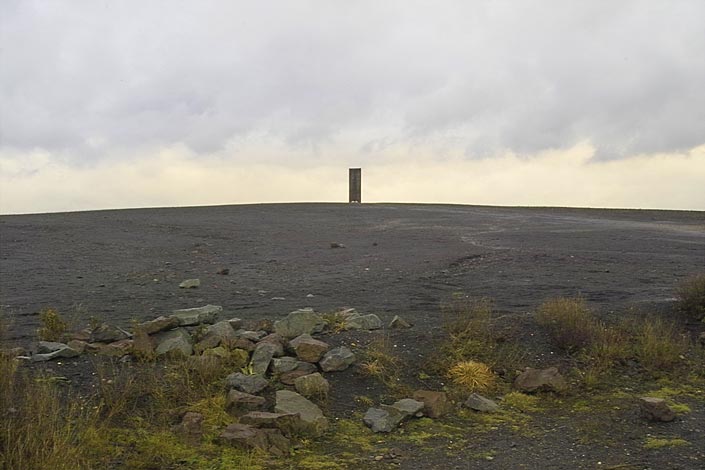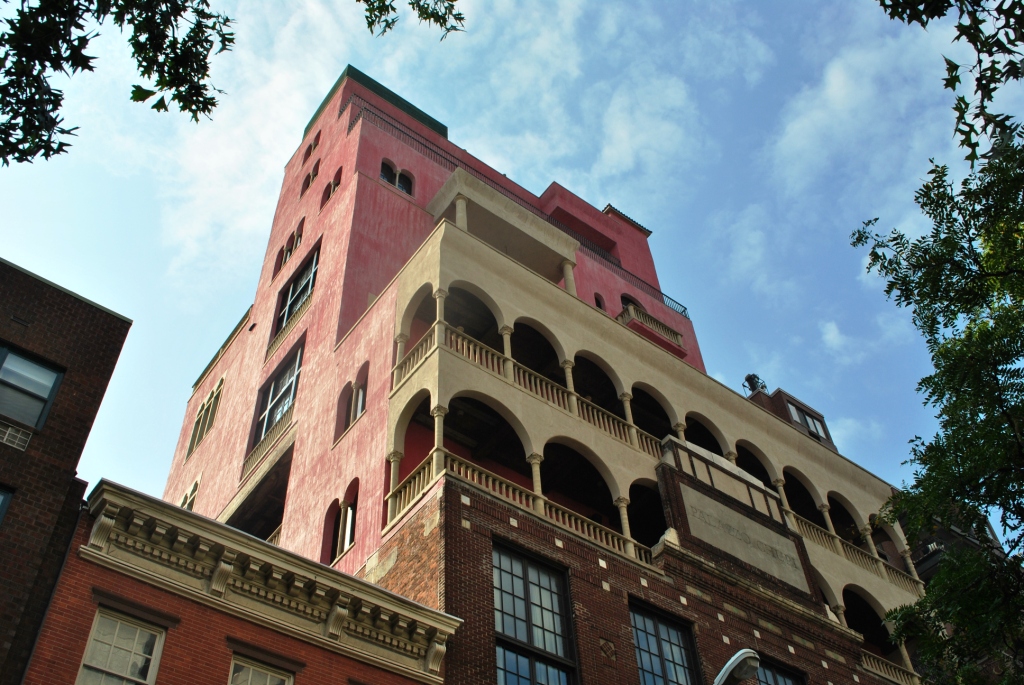|
Katherine Bigelow
Kathryn Ann Bigelow (; born November 27, 1951) is an American filmmaker. Covering a wide range of genres, her films include '' Near Dark'' (1987), '' Point Break'' (1991), '' Strange Days'' (1995), '' K-19: The Widowmaker'' (2002), ''The Hurt Locker'' (2008), ''Zero Dark Thirty'' (2012), and ''Detroit'' (2017). Bigelow was the first woman to win the Academy Award for Best Director with ''The Hurt Locker'', the Directors Guild of America Award for Outstanding Directing, and the BAFTA Award for Best Direction. She was also the first woman to win the Saturn Award for Best Director, with ''Strange Days''. In addition, ''Time'' magazine named her one of the 100 most influential people in the world in 2010. Early life and education Bigelow was born in San Carlos, California, the only child of Gertrude Kathryn (née Larson; 1917–1994), a librarian, and Ronald Elliot Bigelow (1915–1992), a paint factory manager. Her mother was of Norwegian descent. She attended Sunny Hills High Sch ... [...More Info...] [...Related Items...] OR: [Wikipedia] [Google] [Baidu] |
San Carlos, California
San Carlos (Spanish for "St. Charles") is a city in San Mateo County, California, United States. The population is 30,722 per the 2020 census. History Native Americans Prior to the Spanish arrival in 1769, the land of San Carlos was occupied by a group of Native Americans who called themselves the Lamchins. While they considered themselves to have a separate identity from other local tribes, modern scholars consider them to be a part of the Ohlone or Costanoan tribes that inhabited the Bay Area. The Lamchins referred to the area of their primary residenceprobably on the north bank of Pulgas creekas "Cachanihtac", which included their word for vermin. When the Spanish arrived, they translated this as "the fleas", or "las Pulgas", giving many places and roads their modern names. The Native American life was one of traditional hunting and gathering. There was plentiful game and fowl available, and fish could be caught in the San Francisco Bay. There were also grasses, pl ... [...More Info...] [...Related Items...] OR: [Wikipedia] [Google] [Baidu] |
Time (magazine)
''Time'' (stylized in all caps) is an American news magazine based in New York City. For nearly a century, it was published Weekly newspaper, weekly, but starting in March 2020 it transitioned to every other week. It was first published in New York City on March 3, 1923, and for many years it was run by its influential co-founder, Henry Luce. A European edition (''Time Europe'', formerly known as ''Time Atlantic'') is published in London and also covers the Middle East, Africa, and, since 2003, Latin America. An Asian edition (''Time Asia'') is based in Hong Kong. The South Pacific edition, which covers Australia, New Zealand, and the Pacific Islands, is based in Sydney. Since 2018, ''Time'' has been published by Time USA, LLC, owned by Marc Benioff, who acquired it from Meredith Corporation. History ''Time'' has been based in New York City since its first issue published on March 3, 1923, by Briton Hadden and Henry Luce. It was the first weekly news magazine in the United St ... [...More Info...] [...Related Items...] OR: [Wikipedia] [Google] [Baidu] |
Edward W
Edward is an English given name. It is derived from the Anglo-Saxon name ''Ēadweard'', composed of the elements '' ēad'' "wealth, fortune; prosperous" and '' weard'' "guardian, protector”. History The name Edward was very popular in Anglo-Saxon England, but the rule of the Norman and Plantagenet dynasties had effectively ended its use amongst the upper classes. The popularity of the name was revived when Henry III named his firstborn son, the future Edward I, as part of his efforts to promote a cult around Edward the Confessor, for whom Henry had a deep admiration. Variant forms The name has been adopted in the Iberian peninsula since the 15th century, due to Edward, King of Portugal, whose mother was English. The Spanish/Portuguese forms of the name are Eduardo and Duarte. Other variant forms include French Édouard, Italian Edoardo and Odoardo, German, Dutch, Czech and Romanian Eduard and Scandinavian Edvard. Short forms include Ed, Eddy, Eddie, Ted, Teddy and Ned. Pe ... [...More Info...] [...Related Items...] OR: [Wikipedia] [Google] [Baidu] |
Andrew Sarris
Andrew Sarris (October 31, 1928 – June 20, 2012) was an American film critic. He was a leading proponent of the auteur theory of film criticism. Early life Sarris was born in Brooklyn, New York, to Greek immigrant parents, Themis (née Katavolos) and George Andrew Sarris, and grew up in Ozone Park, Queens. After attending John Adams High School in South Ozone Park (where he overlapped with Jimmy Breslin), he graduated from Columbia University in 1951 and then served for three years in the Army Signal Corps before moving to Paris for a year, where he became a friend of Jean-Luc Godard and François Truffaut. Upon returning to New York's Lower East Side, Sarris briefly pursued graduate studies at his alma mater and Teachers College, Columbia University before turning to film criticism as a vocation. Career After initially writing for ''Film Culture'', he moved to ''The Village Voice'' where his first piece—a laudatory review of '' Psycho''—was published in 1960. Later he re ... [...More Info...] [...Related Items...] OR: [Wikipedia] [Google] [Baidu] |
Manohla Dargis
Manohla June Dargis () is an American film critic. She is one of the chief film critics for ''The New York Times''. She is a five-time finalist for the Pulitzer Prize for Criticism. Career Before being a film critic for ''The New York Times'', Dargis was a chief film critic for the ''Los Angeles Times'', the film editor at the ''LA Weekly'', and a film critic at ''The Village Voice'', where she had two columns on avant-garde cinema ("CounterCurrents" and "Shock Corridor"). Her work has been included in a number of books, including ''Women and Film: A Sight and Sound Reader'' and ''American Movie Critics: An Anthology from the Silents Until Now,'' published by the Library of America. She wrote a monograph on Curtis Hanson's film ''L.A. Confidential'' for the British Film Institute and served as the president and vice-president of the Los Angeles Film Critics Association. In 2012, Dargis received the Nelson A. Rockefeller Award from Purchase College; the award is, according to th ... [...More Info...] [...Related Items...] OR: [Wikipedia] [Google] [Baidu] |
Susan Sontag
Susan Sontag (; January 16, 1933 – December 28, 2004) was an American writer, philosopher, and political activist. She mostly wrote essays, but also published novels; she published her first major work, the essay "Notes on 'Camp'", in 1964. Her best-known works include the critical works ''Against Interpretation'' (1966), ''Styles of Radical Will'' (1968), ''On Photography'' (1977), and ''Illness as Metaphor'' (1978), as well as the fictional works ''The Way We Live Now'' (1986), ''The Volcano Lover'' (1992), and '' In America'' (1999). Sontag was active in writing and speaking about, or travelling to, areas of conflict, including during the Vietnam War and the Siege of Sarajevo. She wrote extensively about photography, culture and media, AIDS and illness, human rights, and leftist ideology. Her essays and speeches drew controversy, and she has been described as "one of the most influential critics of her generation." Early life and education Sontag was born Susan Rosenblatt in ... [...More Info...] [...Related Items...] OR: [Wikipedia] [Google] [Baidu] |
Sylvère Lotringer
Sylvère Lotringer (15 October 1938 – 8 November 2021) was a French-born Literary critics, literary critic and cultural theorist. Initially based in New York City, he later lived in Los Angeles and Baja California, Mexico.Hultkrans, Andrew"Bookforum talks with Sylvère Lotringer,"14 September 2015. Retrieved 7 October 2021.Schwarz, Henry and Anne Balsamo. "Under the Sign of Semiotext(e): The Story According to Sylvere Lotringer and Chris Kraus," ''Critique'', Spring 1996, p. 205–21. He is best known for synthesizing Post-structuralism, French theory with American literary, cultural and architectural avant-garde movements as founder of the journal ''Semiotext(e)'' and for his interpretations of theory in a 21st-century context.Darms, Lisa"Semiotext at the Biennial: An Interview with Hedi el Kholti,"''Hyperallergic'', 17 May 2014. Retrieved 7 October 2021.Whitney Museum of American ArtSemiotext(e)2014 Biennial. Retrieved 7 October 2021.''Semiotext(e)''Sylvère Lotringer Retrieve ... [...More Info...] [...Related Items...] OR: [Wikipedia] [Google] [Baidu] |
Philip Glass
Philip Glass (born January 31, 1937) is an American composer and pianist. He is widely regarded as one of the most influential composers of the late 20th century. Glass's work has been associated with minimal music, minimalism, being built up from repetitive phrases and shifting layers. Glass describes himself as a composer of "music with repetitive structures", which he has helped evolve stylistically. Glass founded the Philip Glass Ensemble, with which he still performs on keyboards. He has written fifteen operas, numerous chamber operas and musical theatre works, fourteen symphony, symphonies, twelve concertos, nine string quartets and various other chamber music, and several film scores. Three of his film scores have been nominated for an Academy Award. Life and work 1937–1964: Beginnings, early education and influences Philip Glass was born in Baltimore, Maryland, on January 31, 1937, the son of Ida (née Gouline) and Benjamin Charles Glass. His family were Lithuanian Je ... [...More Info...] [...Related Items...] OR: [Wikipedia] [Google] [Baidu] |
Richard Serra
Richard Serra (born November 2, 1938) is an American artist known for his large-scale sculptures made for site-specific landscape, urban, and architectural settings. Serra's sculptures are notable for their material quality and exploration of the relationship between the viewer, the work, and the site. Since the mid-1960s, Serra has worked to radicalize and extend the definition of sculpture beginning with his early experiments with rubber, neon, and lead, to his large-scale steel works. Early life and education Serra was born in San Francisco, California to Tony and Gladys Serra – the second of three sons. From a young age, he was encouraged to draw by his mother. The young Serra would carry a small notebook for his sketches and his mother would introduce her son as "Richard the artist." His father worked as a pipe fitter for a shipyard near San Francisco. Serra recounts a memory of a visit to the shipyard to see a boat launch when he was four years old. He watched as t ... [...More Info...] [...Related Items...] OR: [Wikipedia] [Google] [Baidu] |
Vito Acconci
Vito Acconci (, ; January 24, 1940 – April 27, 2017) was an influential American performance, video and installation artist, whose diverse practice eventually included sculpture, architectural design, and landscape design. His foundational performance and video art was characterized by "existential unease," exhibitionism, discomfort, transgression and provocation, as well as wit and audacity, and often involved crossing boundaries such as public–private, consensual–nonconsensual, and real world–art world. His work is considered to have influenced artists including Laurie Anderson, Karen Finley, Bruce Nauman, and Tracey Emin, among others. Acconci was initially interested in radical poetry, but by the late 1960s, he began creating Situationist-influenced performances in the street or for small audiences that explored the body and public space. Two of his most famous pieces were ''Following Piece'' (1969), in which he selected random passersby on New York City streets an ... [...More Info...] [...Related Items...] OR: [Wikipedia] [Google] [Baidu] |
Julian Schnabel
Julian Schnabel (born October 26, 1951) is an American painter and filmmaker. In the 1980s, he received international attention for his "plate paintings" — with broken ceramic plates set onto large-scale paintings. Since the 1990s, he has been a proponent of independent arthouse cinema. Schnabel directed ''Before Night Falls'', which became Javier Bardem's breakthrough Academy Award-nominated role, and '' The Diving Bell and the Butterfly'', which was nominated for four Academy Awards. For the latter, he won the Cannes Film Festival Award for Best Director and the Golden Globe Award for Best Director, as well as receiving nominations for the Academy Award for Best Director and the César Award for Best Director. Biography Early life and education Schnabel was born in Brooklyn, New York to a Jewish family, the son of Esta (née Greenberg) and Jack Schnabel. He moved with his family to Brownsville, Texas in 1965. He received his B.F.A. at the University of Houston. After graduati ... [...More Info...] [...Related Items...] OR: [Wikipedia] [Google] [Baidu] |
Whitney Museum Of American Art
The Whitney Museum of American Art, known informally as "The Whitney", is an art museum in the Meatpacking District and West Village neighborhoods of Manhattan in New York City. It was founded in 1930 by Gertrude Vanderbilt Whitney (1875–1942), a wealthy and prominent American socialite, sculptor, and art patron after whom it is named. The Whitney focuses on 20th- and 21st-century American art. Its permanent collection, spanning the late-19th century to the present, comprises more than 25,000 paintings, sculptures, drawings, prints, photographs, films, videos, and artifacts of new media by more than 3,500 artists. It places particular emphasis on exhibiting the work of living artists as well as maintaining an extensive permanent collection of important pieces from the first half of the last century. The museum's Annual and Biennial exhibitions have long been a venue for younger and lesser-known artists whose work is showcased there. From 1966 to 2014, the Whitney was at 945 Mad ... [...More Info...] [...Related Items...] OR: [Wikipedia] [Google] [Baidu] |



.jpg)




